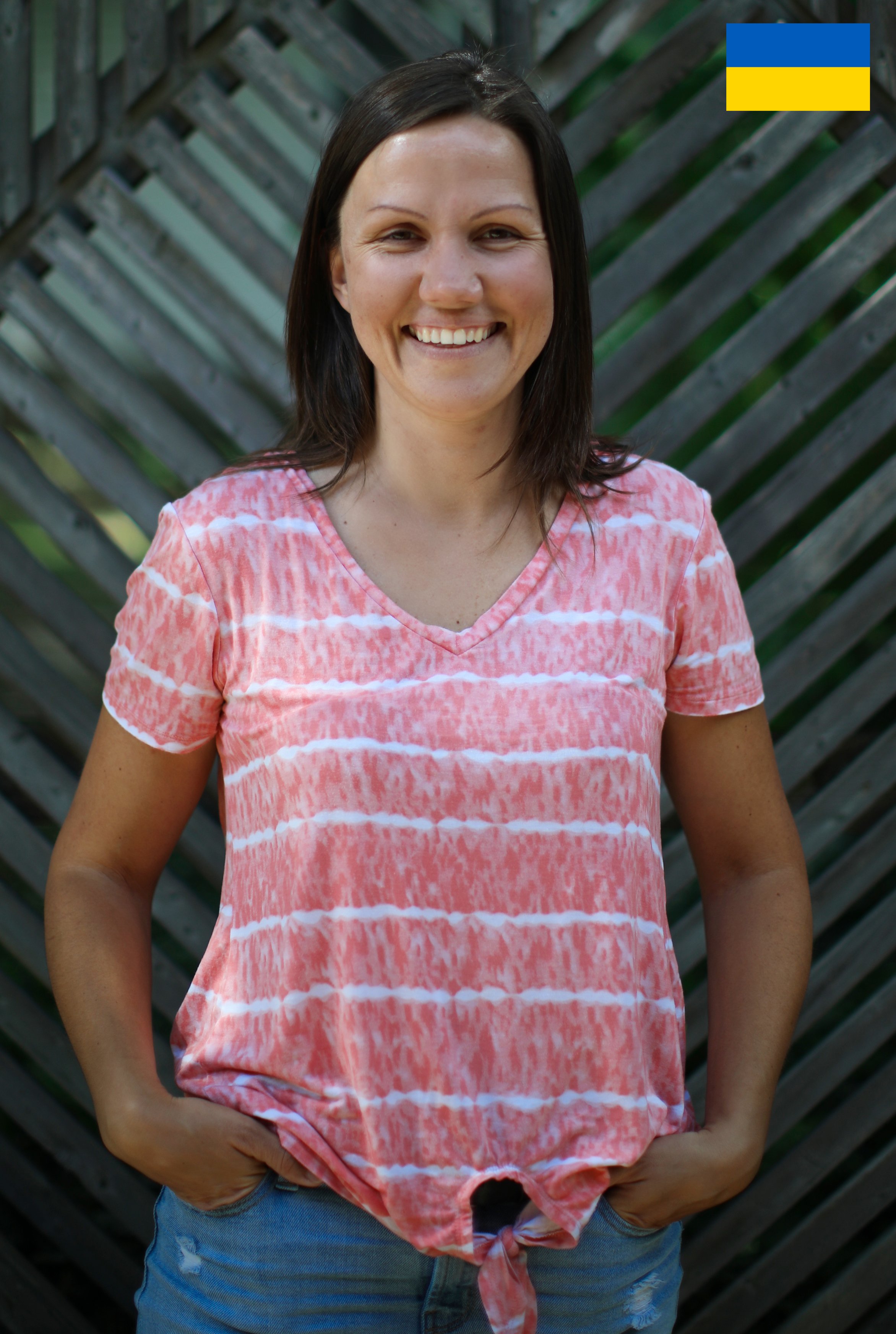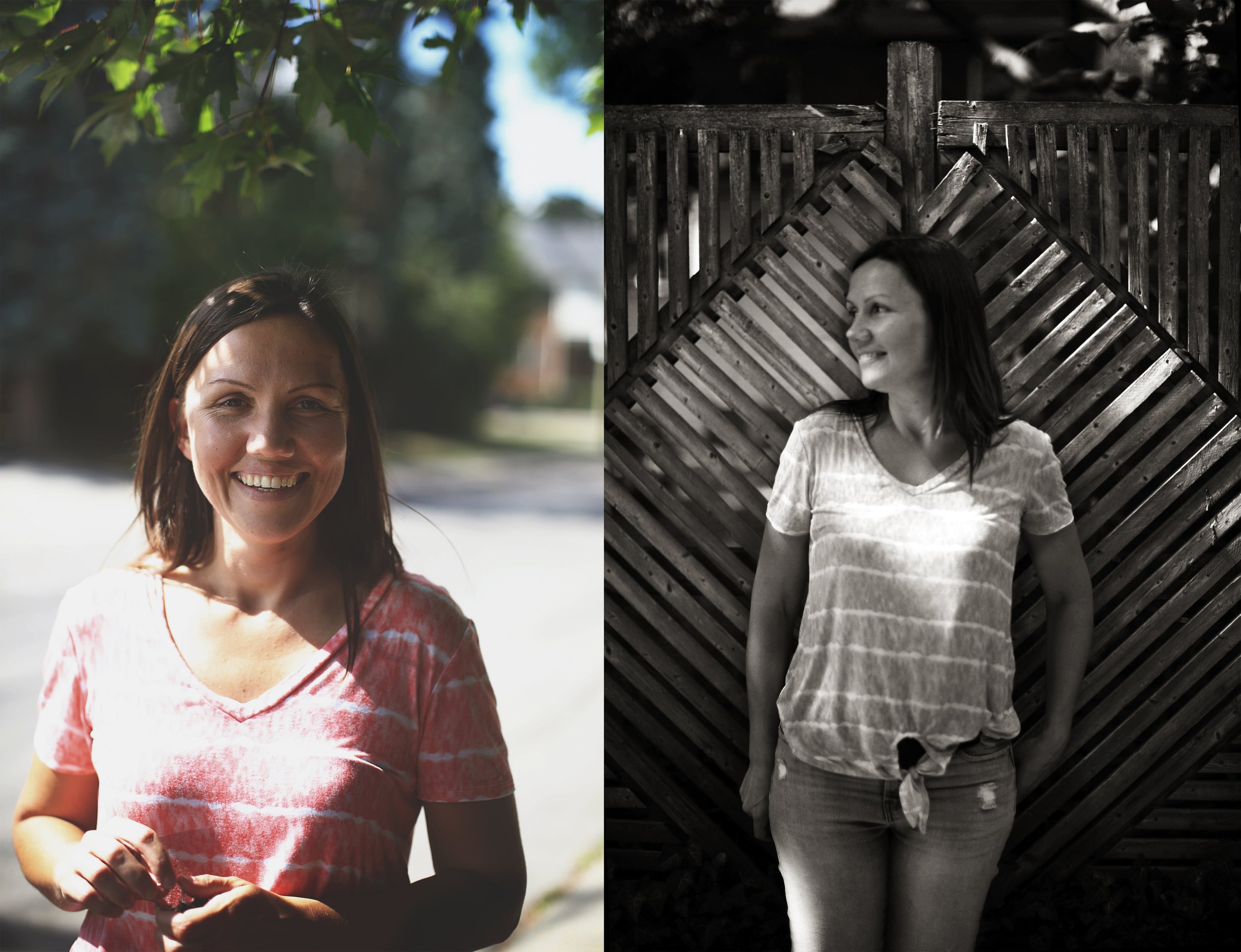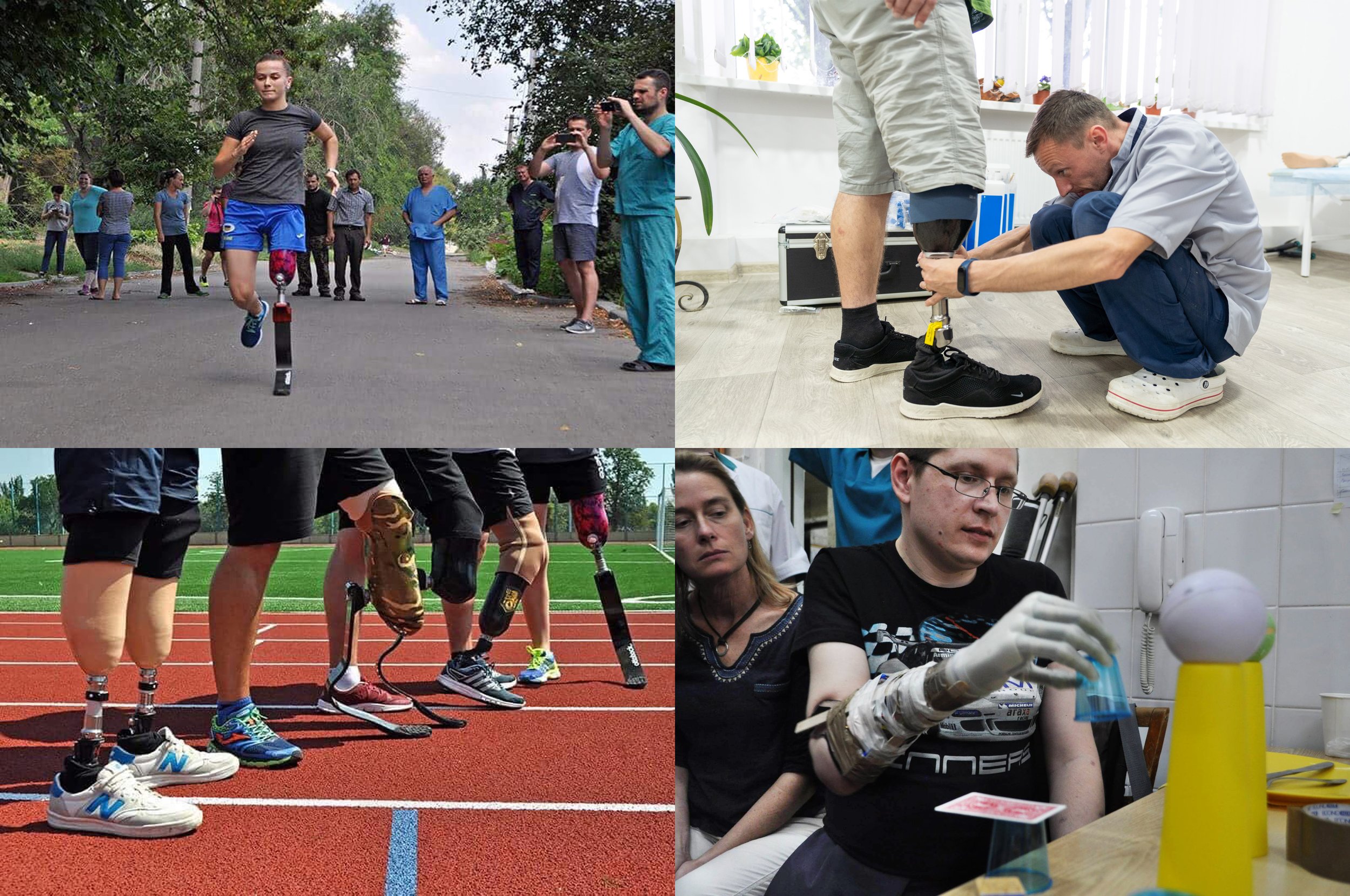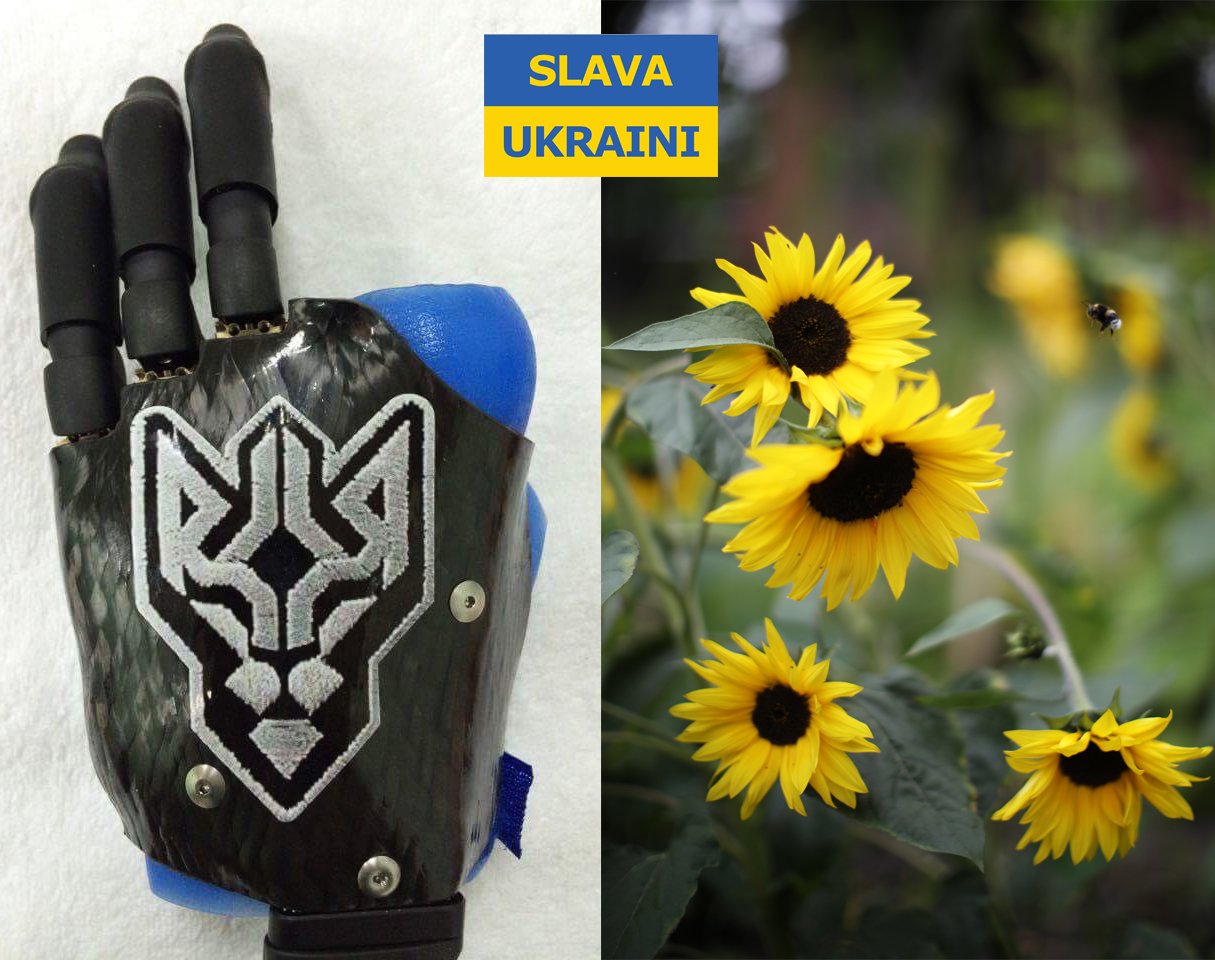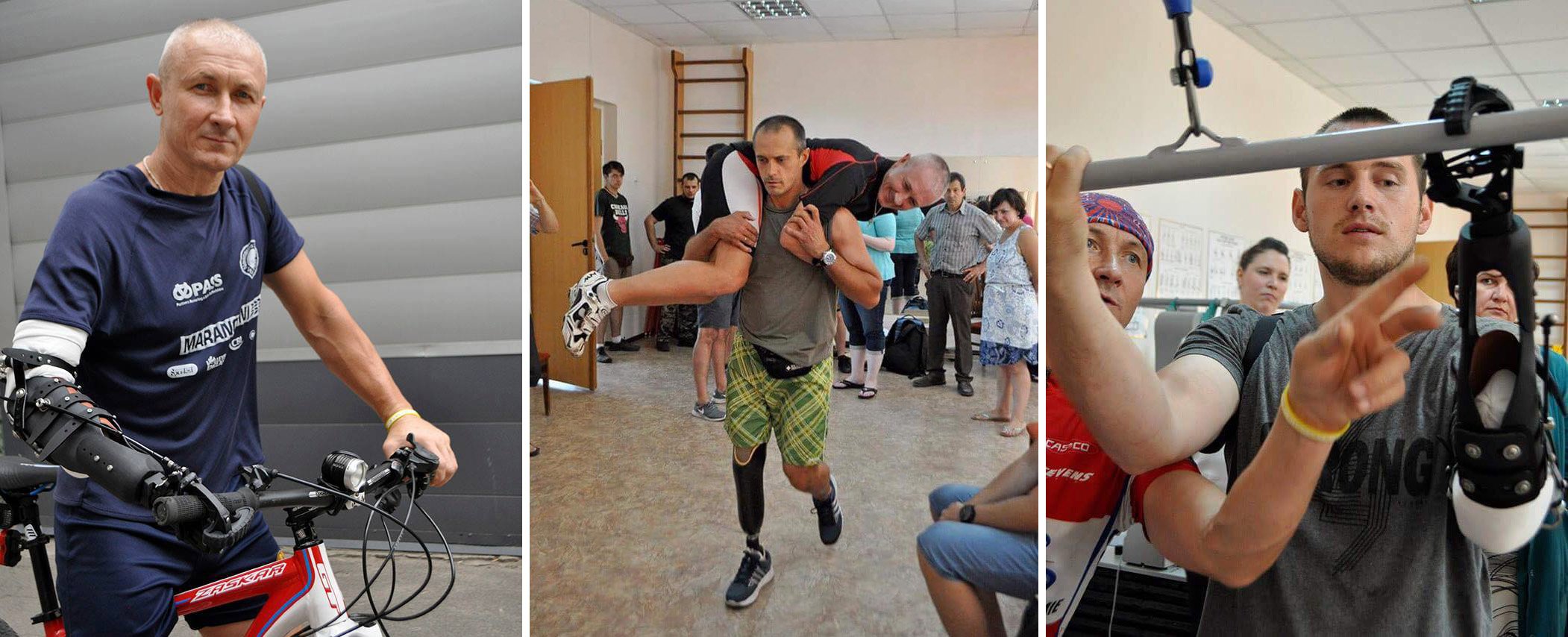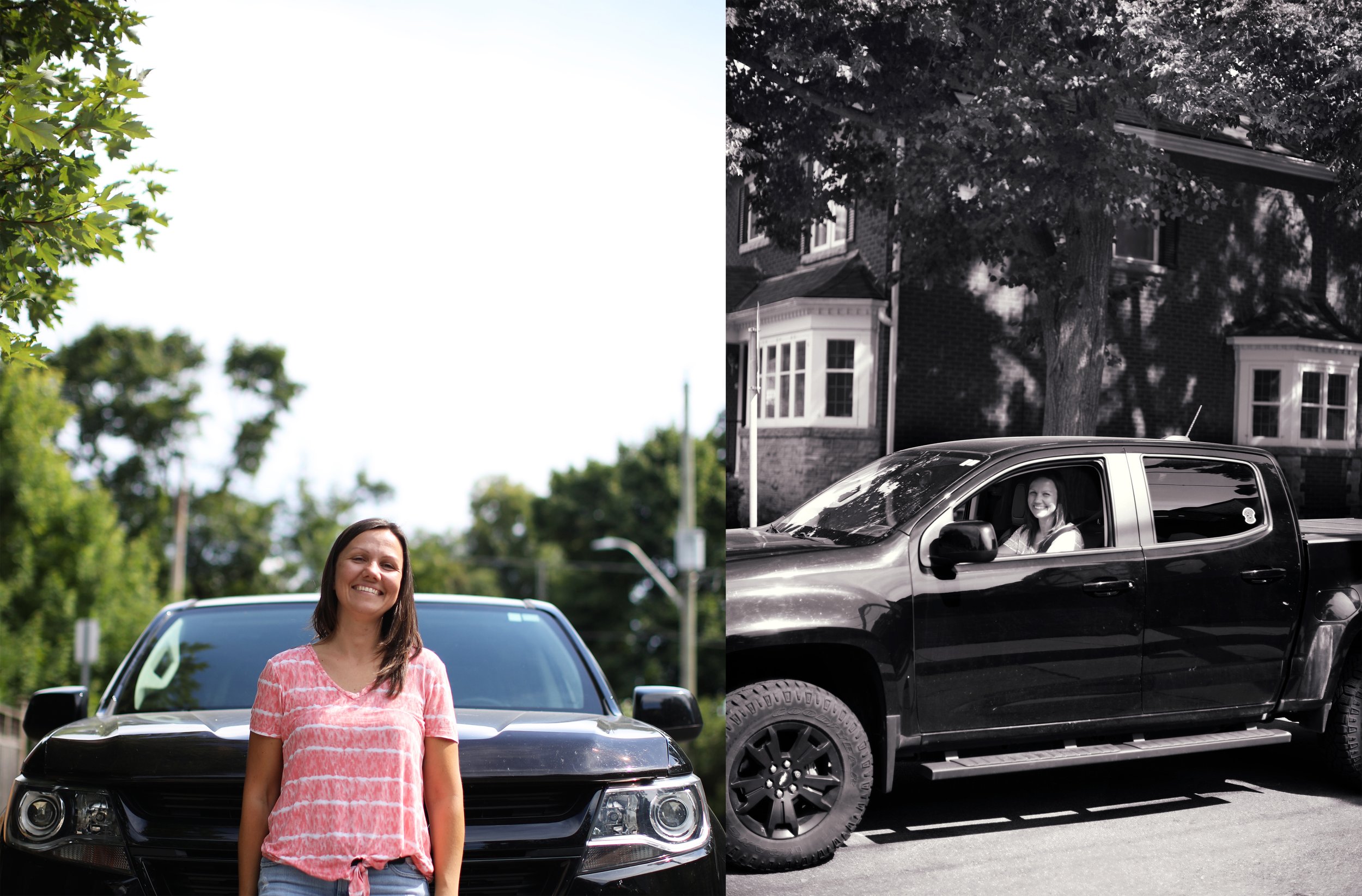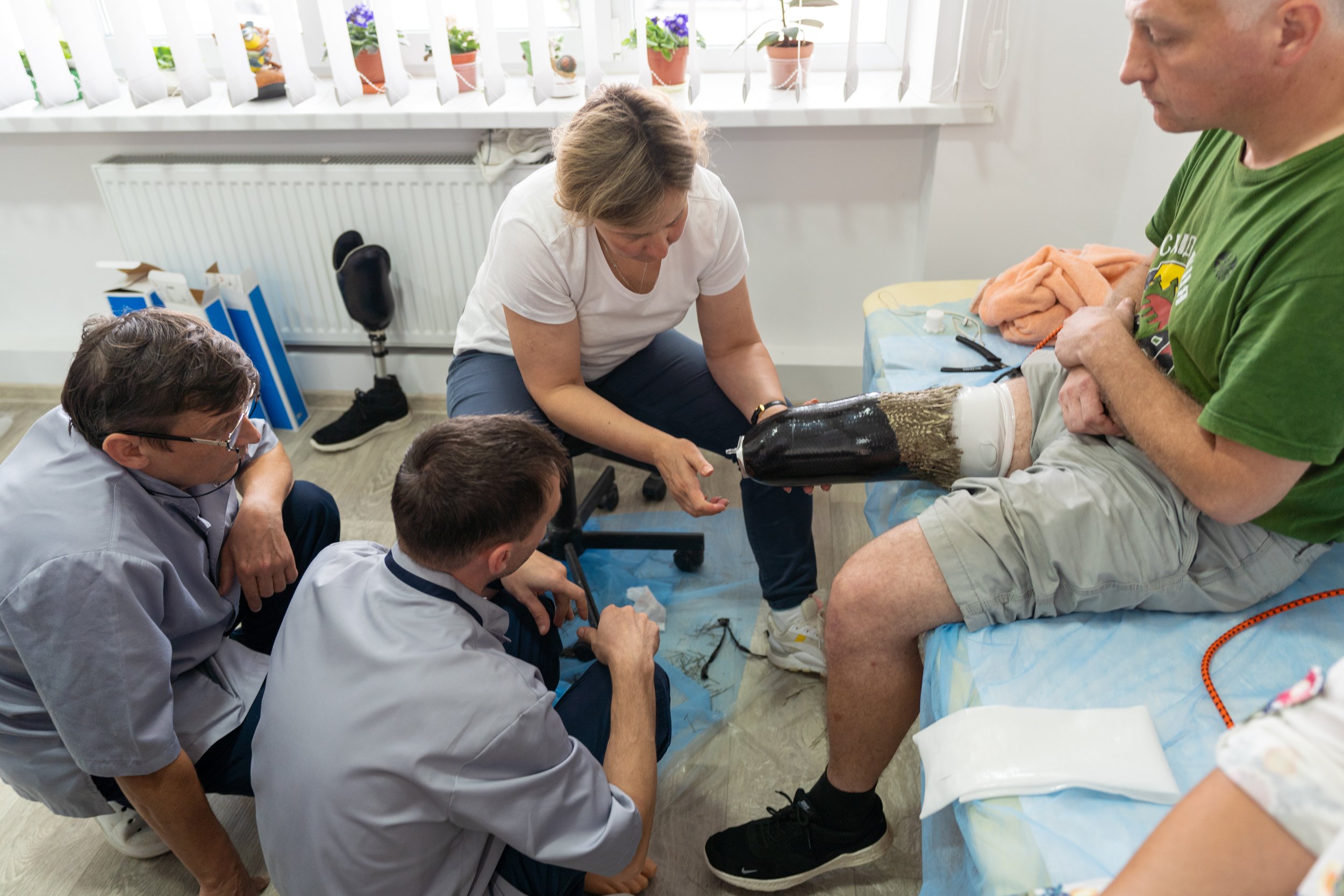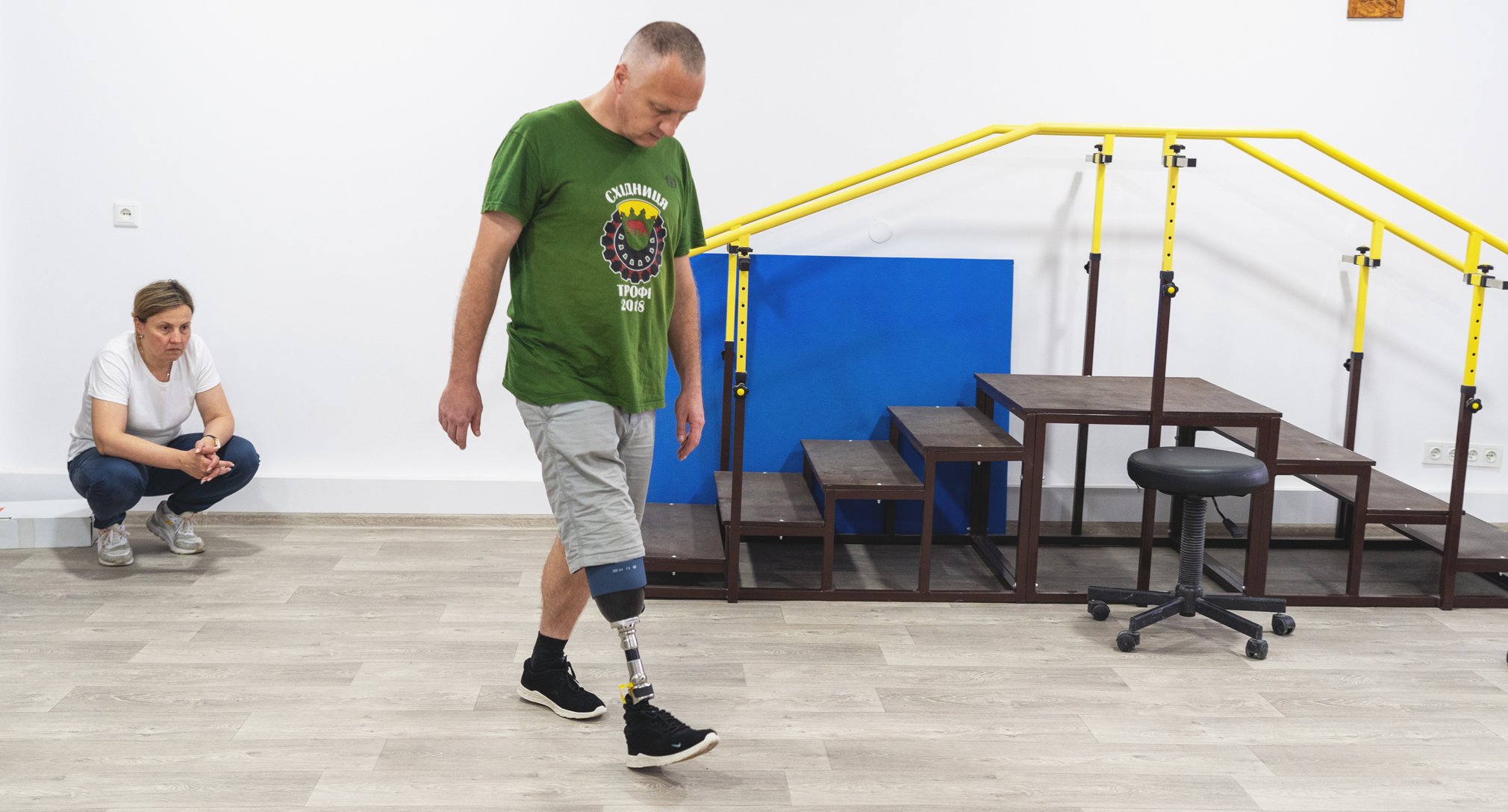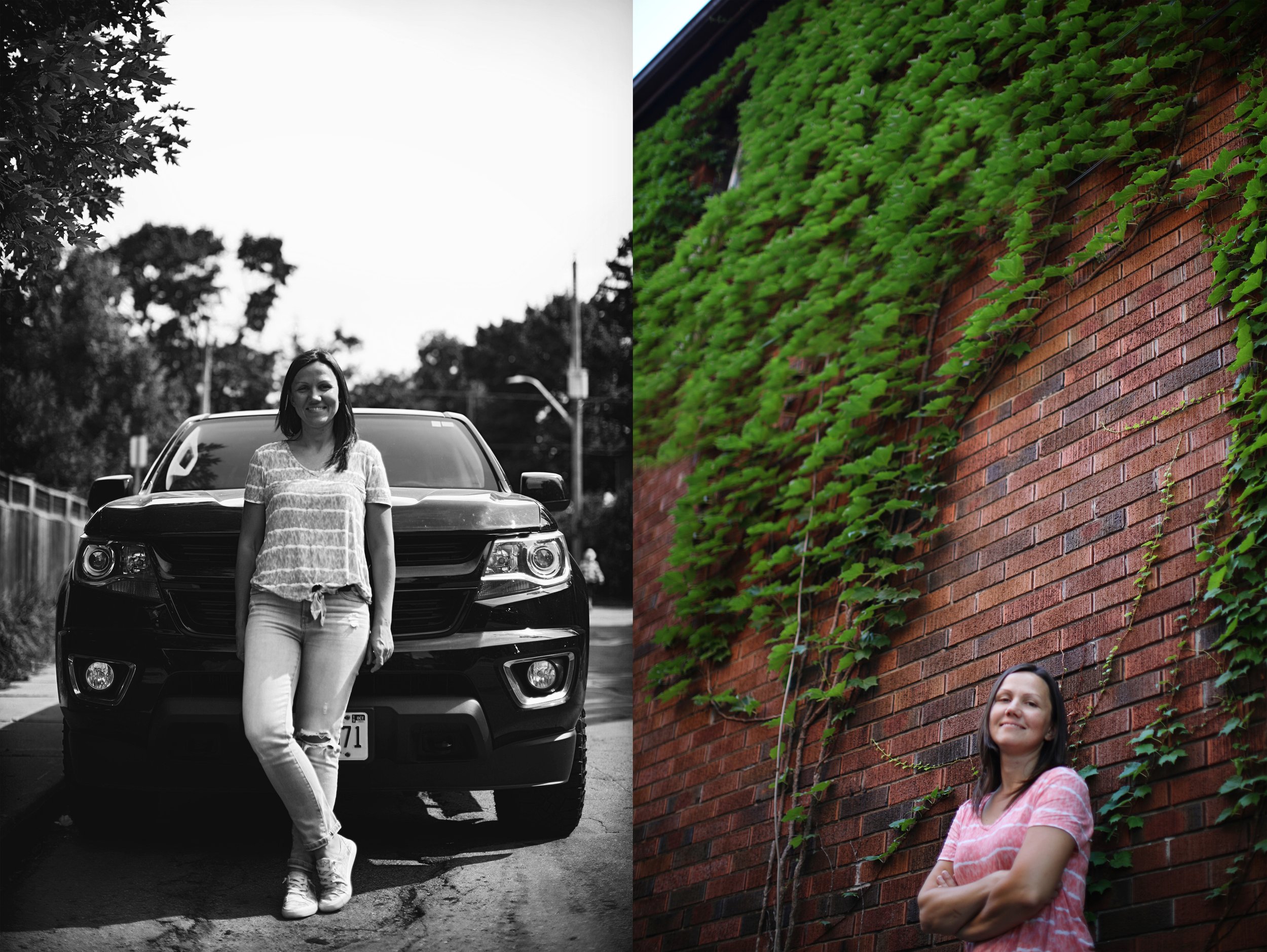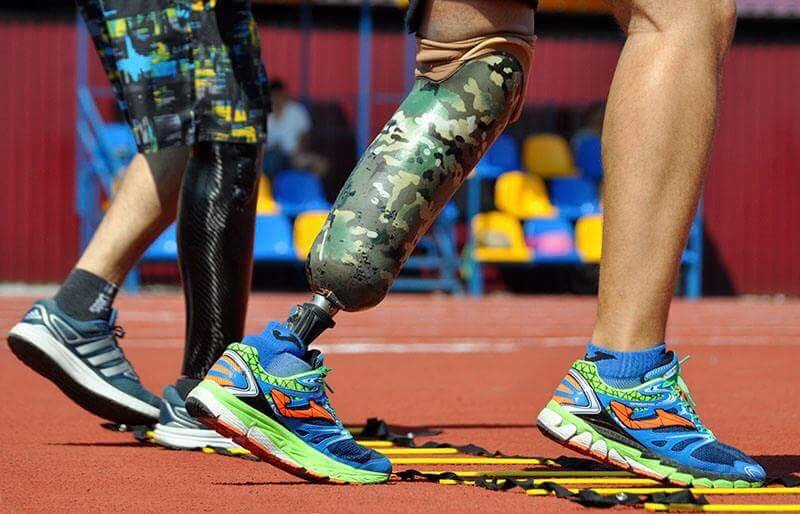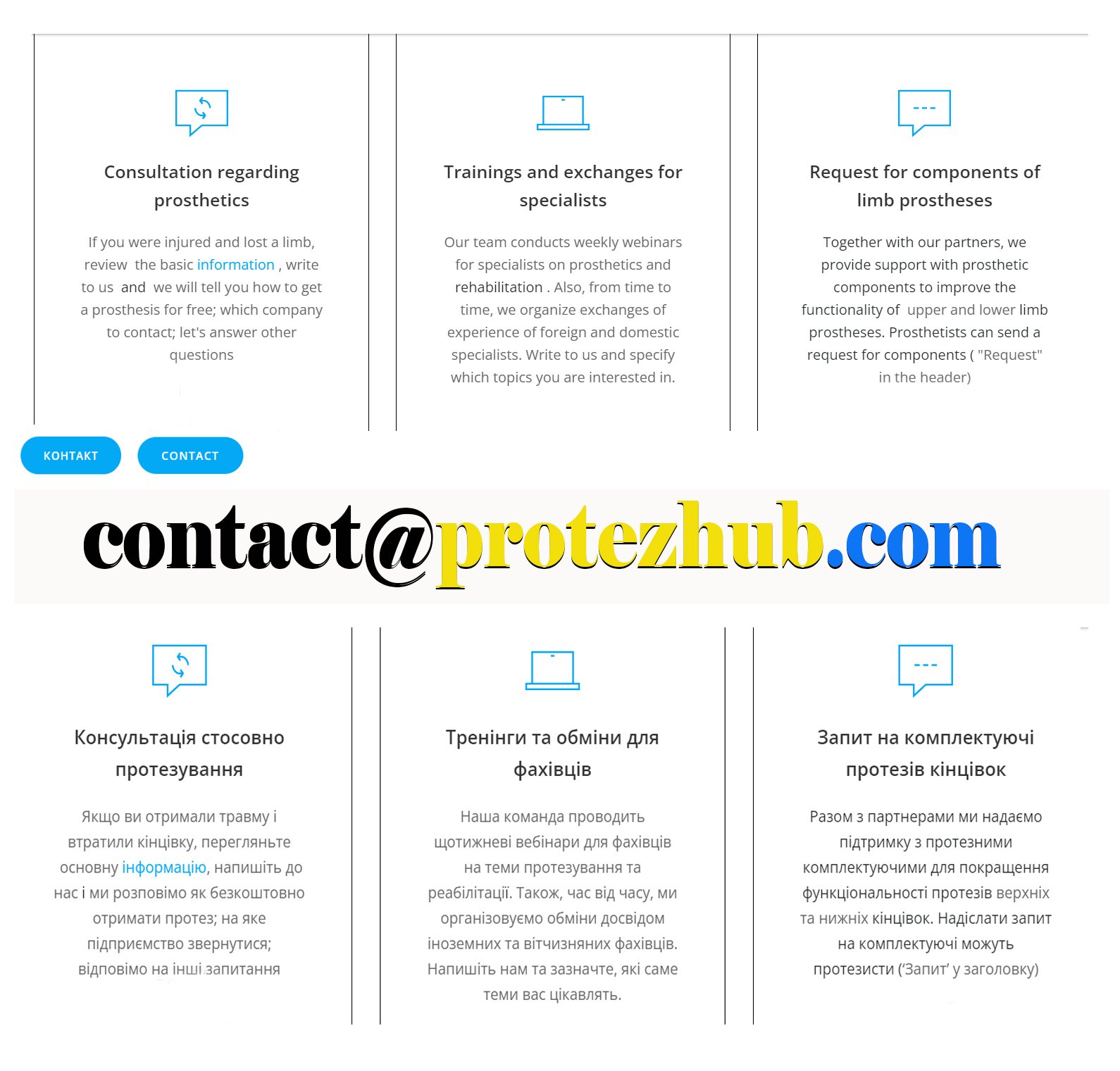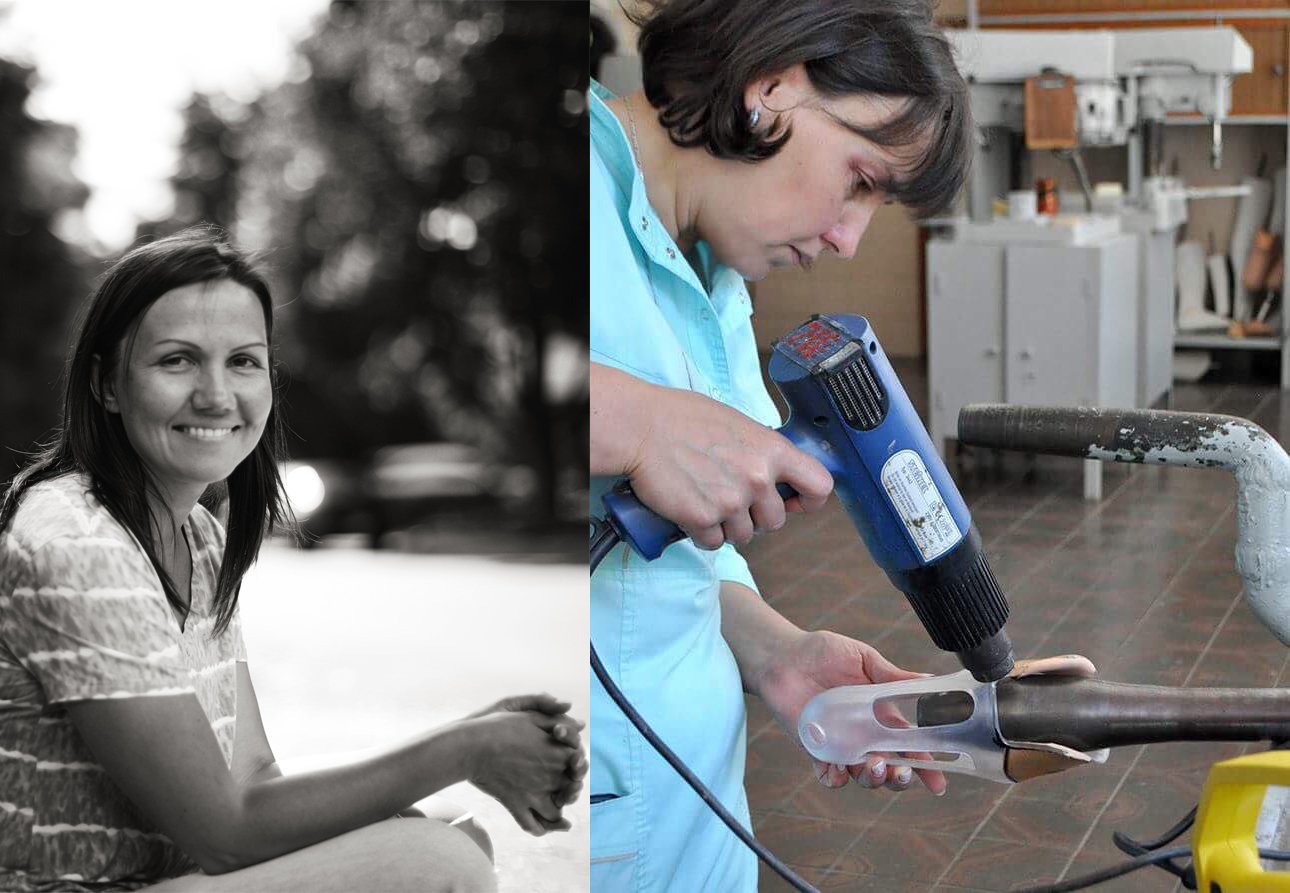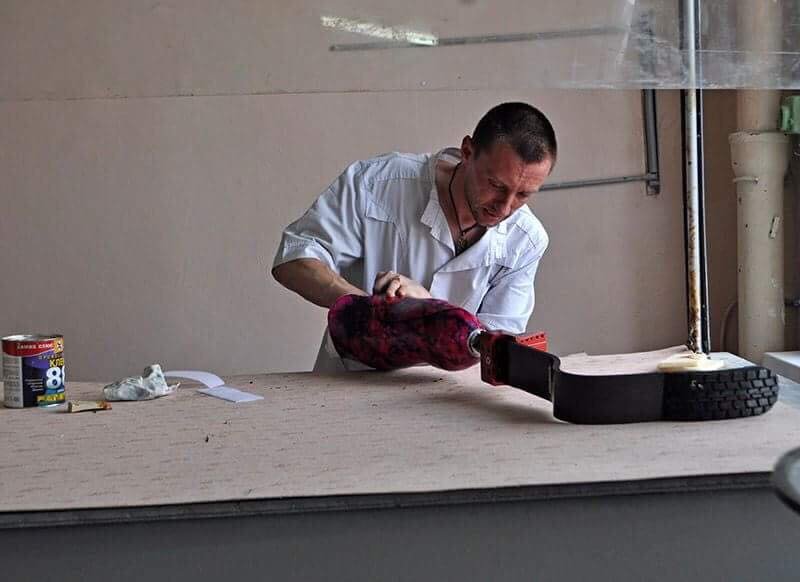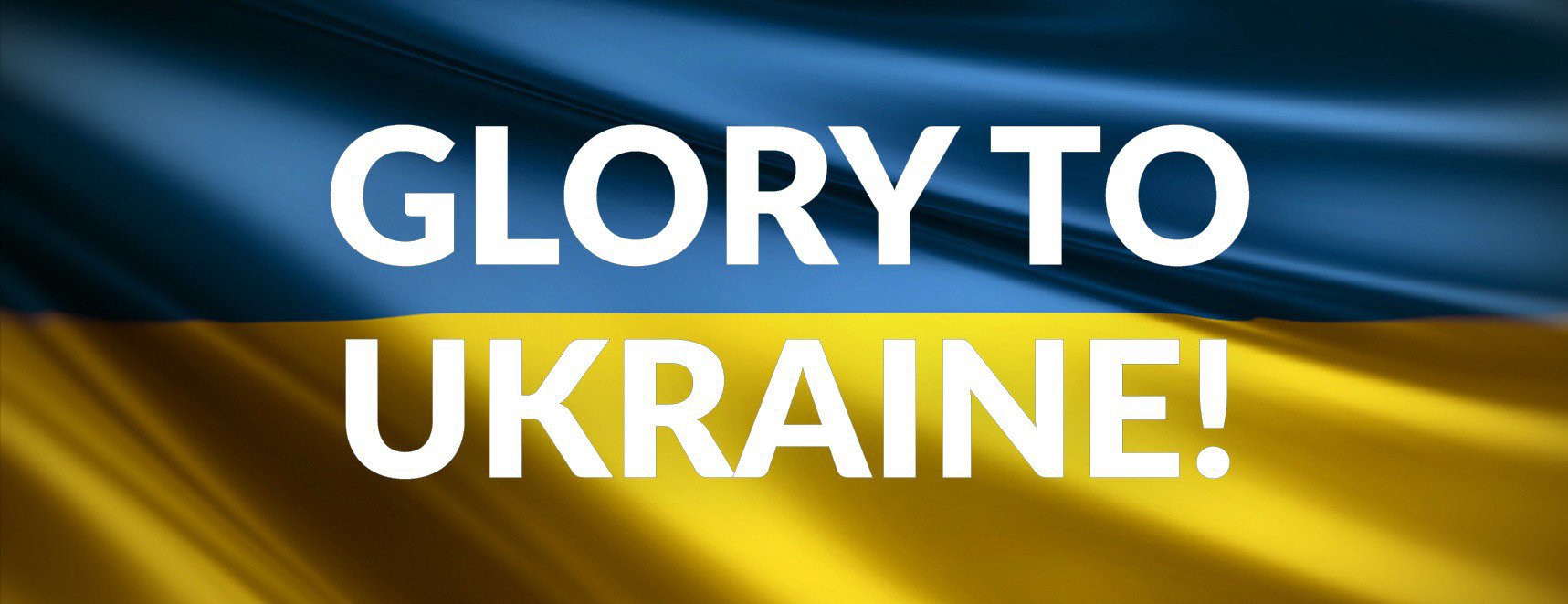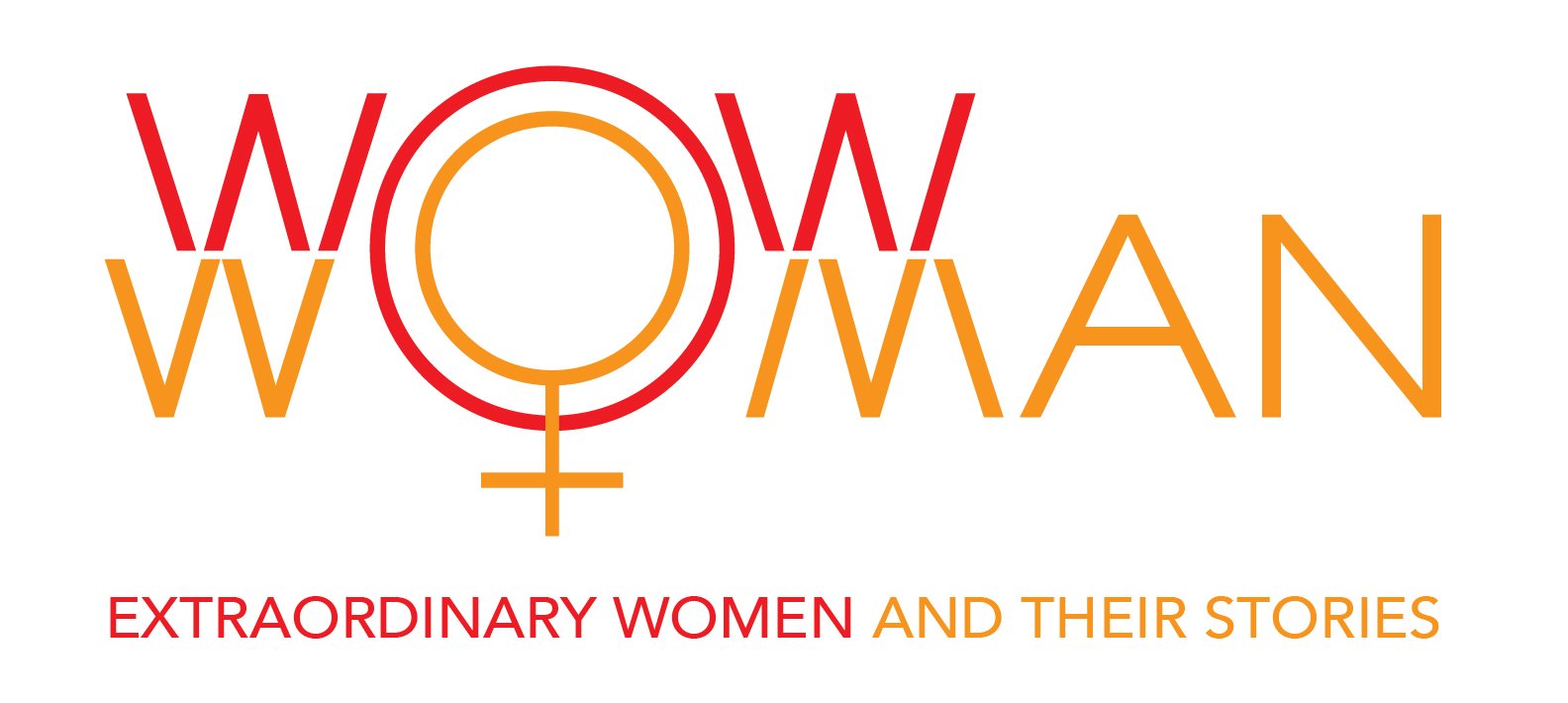Founder, Ukraine Prosthetic Assistance Project, Math Teacher, Proud Ukrainian Doer, Hamilton, Canada
Putin messed with the wrong nation. Why? Because Ukrainians are brave and determined. Mr. Vasyl Shtefko lost his legs in 2004 and still tried to join the Ukrainian Army in 2014. He wasn't allowed in, yet he didn’t give up. In 2022 Mr. Shtefko turned 55, just as russia invaded his country again. Mr. Shtefko hid his prostheses and managed to get into the army! His prostheses were revealed when he was on the frontlines, successfully defending Ukraine. Mr. Shtefko is back home, after serving for six months in Eastern Ukraine; he remains in the Army.
Putin messed with the wrong nation. Why? Because Ukrainians are resilient and resourceful. Over the past nine months of russia’s unjust war in Ukraine, I’ve been privileged to meet and feature a diverse group of Ukrainian and international WOW Women. There are those who help shelter Ukrainian refugees, or others who fundraise for drones as they undergo chemo. Some women procure and deliver ambulances and humanitarian aid into Ukraine, while others spend long shifts at the Ukranian border feeding the hungry. Of course, there are those with full time work and family commitments, who still manage to volunteer nights and weekends at the shelter filled with Ukrainian women and children.
Putin messed with the wrong nation. Why? Because there are women like Antonina Kumka out there. Just when I thought I couldn’t be prouder of Ukrainians, I met Ms. Kumka. A high school math teacher by day, Ms. Kumka’s second - and unpaid - job is running the Ukraine Prosthetic Assistance Project - an initiative to aid Ukrainian victims of the russian war in Ukraine. With a Masters in Education, and 12+ years of teaching experience, Ms. Kumka had no connections to prosthetic industry nor medical rehabilitation. Yet that is exactly the world she taught herself about and is fluent in now. Antonina helps Ukrainians, robbed of their limbs by the russian bombs, get back up, walk and run (and as Mr. Shtefko showed, fight!). How does she do it? As the entire project’s manager, Ms. Kumka is busy with much facilitating, translating and coordinating. Ms. Kumka’s model is to successfully educate Ukrainian prosthetists on the technology developed by the Össur Company, in Iceland.
Antonina brings the know-how into Ukraine, thereby ensuring that the survivor and his/her prosthesis are able to have a chance for a medical follow up in Ukraine. This is brilliant solution because, as I learned, prosthesis fitting and re-fitting is an ongoing process, requiring long-term care. The only realistic option for a soldier, is to have all the pieces for re-fitting in a reachable place - and that is Ukraine. The good news is that the Össur technology Ms. Kumka introduced to Ukrainian Ministry of Health, and to the various doctors spread throughout Ukraine, is effective, straight-forward, and easy to transfer; an amputee can be walking on a custom limb after a two-hour fitting session.
The WOW Woman behind this gargantuan effort is a soft-spoken, kind-hearted superheroine, an immigrant and a mother of two boys, aged six and sixteen. We met in a small Canadian town, far away from Ukraine; but it may as well have been in the country at war, because this is exactly how Ms. Kumka treats her mission. As we chatted, I realized where Ms. Antonina Kumka gets her will and determination from; I instantly understood that Putin has no chance in Ukraine. Antonina’s father, Ihor, is a serving medic with the Ukrainian army; he saves wounded Ukrainians on the front lines every day. He then passes the baton to his daughter who gets these heroes up and literally running. Together, despite the 8,000 km physical distance, Antonina and her father give Ukrainian heroes a second and third chance at life.
Putin messed with the wrong nation. Why? Antonina and Ihor, that’s why!
1. Name.
Antonina Kumka.
2. Where is your hometown?
Chernivtsi, Чернівці, Ukraine.
3. What is your profession/career/title/self-label/designation? What does your average day look like?
I work as a Senior Math High School Teacher and I love what I do. I am also a Volunteer and a Project Coordinator; I run many smaller and a few bigger projects in support of Ukraine.
4. What did you study in school?
I graduated from Chernivtsi National University with a Masters Degree in English Language and Literature. At the same university I also studied Economics as a separate graduate program. In Canada, my credentials were recognized as a Master of Education. I am obsessed with continuing education and self-education. I constantly learn new things formally and informally.
5. What was the journey like to get where you are (in life and career-wise)? Write about some of the achievements that you are most proud of. What was the moment for you that changed your life (in your personal life and/or career?) that set you on the current path in life? What did you do before the war, and why and how did you start helping Ukrainian women?
When I immigrated to Canada in 2006, I decided to become a public-school teacher, because I spoke English well and my credentials were recognized. I received my certification rather quickly and started working as a supply (or a substitute) teacher, a contract teacher and finally in a permanent position.
I was focused on my teaching career until the events in Ukraine in 2013 completely turned my life upside down. I could not sit still and do nothing while my home country was in a turmoil. I started participating in, then organizing rallies, events and fundraisers. I found myself running projects and so much more.
6. What is the current project you’re heading, in support of Ukraine? How did you become involved in the, completely unrelated to your profession, field of prosthetics?
In 2014 our volunteer group received a donation of e-readers which we gladly distributed to the wounded soldiers in the various hospitals. One of the soldiers, Sasha, lost both legs. I asked him what we could do to help. He mentioned that prosthetic services were just not up to par in Ukraine; he dreamed of going abroad for decently-made prostheses.
I knew how unsustainable it was to send all affected Ukrainians abroad for fitting, and then again for eventual re-fitting, of prostheses; I couldn’t help envisioning disappointment for many survivors. It was the first time the thought crossed my mind about a possibility of developing a prosthetics industry in Ukraine.
I googled around and found Jon Batzdorff, a certified prosthetist based in California, who was also the founder of a non-profit called Prosthetika. His specialties included sending medical prosthetic experts into developing countries and conducting in-country training of local medical professionals. I asked him if he would consider Ukraine and if we could collaborate, and he said yes. I then started fundraising, planning and organizing. As a result, our first mission to Ukraine took place in April of 2015, and Ukraine Prosthetic Assistance Project was formed.
Ukraine Prosthetic Assistance Project has two main goals which we welcome support with and funding for:
Training of prosthetics and rehabilitation specialists in Ukraine. This involves experience exchange and professional networking between experts in the field and Ukrainian counterparts.
Support for the amputees. This includes providing information for Ukrainian survivors about how and where to get prostheses, efficiently providing answers to the frequently asked questions and creating brochures and guides. It is also imperative to secure funding for prosthetic components, should the needs for re-fitting arise.
I welcome partners who could support either of these two streams.
7. How is your life different from what you pictured at 20?
When I was 20 years old, I wanted to be an interpreter at some big corporation and travel the world. Now, I collaborate with almost every country in the world, as I coordinate aid for Ukraine.
8. Was there a time when life knocked you down or out and how did you get back up on your feet?
When I immigrated to Canada, despite speaking the language well and being familiar with the culture, I had a hard time adjusting. It took me a few years to get used to my new life as an immigrant. Although I came to Canada in 2006, a sense of belonging is still not at a 100%.
9. Advice for other women?
If I were to give advice to other women it would be:
be self-sufficient,
strive for something meaningful and
don’t ever give up.
10. Knowing what we know now in a current political climate, can women be "all that we can be" in today's world? What is the way forward, as you see it, for "feminist values"?
I feel that it is about the equality of opportunities. And in today’s world, in democratic countries, a woman can be anything she wants to be. It is also about having and pursuing your own choices: one woman may choose to focus on her career and become a CEO of a big corporation while another chooses to focus on her family instead. Whatever makes a woman happy and accomplished is what it’s about; as long as there are choices and opportunities.
11. Where in the world do you feel “tallest” (i.e. where is your happy place)?
When I help people and feel that my work in general impacts others in a positive way.
12. What extracurricular activities/hobbies are you most proud of? Why?
I don’t have time for that.
13. Have you travelled solo? If so, which were some of the most memorable destinations and why? Why do you travel and would you recommend it to women?
For pleasure I usually travel with my family. When I travel alone it is to do something meaningful in terms of humanitarian work and it usually travel to Ukraine.
14. What do you want to be when you grow up? Future goals/challenges?
At this point in time, I don’t have to look too far ahead for that. I live from day to day, doing what I feel I need to do in order to help my home country and my people. When we win the war, then I will start dreaming again, thinking and getting excited about the future.
15. What fears are you still hoping to overcome?
Fear of not doing enough to save human lives or support those whom I know I can help.
16. Anything you'd do differently, if you had another go at life?
Nope.
17. What/who inspires you?
My children. They keep me going, they learn from me. I inspire them and they inspire me.
18. What are you hopeful about?
I hope that one day my homeland is rebuilt and my kids can come back to Ukraine and make it their home too.
19. What are some ingredients to a good life? How did the global pandemic and the war in Ukraine change your perspective about the world, about your life, your goals and dreams?
Nothing is certain, freedom is not certain. It is imperative to keep fighting for freedom and never take it for granted. Propaganda is extremely powerful and dangerous.
What do you want the world to know about Ukrainians?
Ukrainians are very resourceful. Despite being considered a developing country, many systems (such as IT, dentistry, prosthetics, etc.) are more advanced than in other parts of the world.
Ukrainian women are pillars of Ukrainian society.
20. What are (at least) three qualities you most love about yourself and why? What are your superpowers?
I persevere. I won’t stop until I achieve my goals
I have a strong sense of justice. If I believe that something is wrong, I won’t accept it
I am not materialistic. I don’t really care what vehicle I drive or what brand I am wearing.
21. What advice would you give your 14-year-old self? What advice would your 14-year-old self give you in return?
I was rather wild when I was 14, despite being an Honors student, I was a very free spirit. So I would tell myself to calm down a bit. My 14-year-old self would probably tell me to find some time for a break during the day and maybe take a walk outside.
22. What are you reading now? (What books do you gift most and what are your favourite reads)?
I used to read quite a bit, but mostly because I had to (university, etc.). I read things that mattered to me: research papers, articles, etc. I do not read any fiction or non-fiction books these days because my life is like a book itself.
23. Who is a WOW WOMAN in your world who inspires you and why? Can you nominate three (or more) women you know who perfectly fit WOW WOMAN description? What would you tell them, if you had an opportunity, about why you admire them?
My friend Lyuba Shipovich is a volunteer and an activist from the United States; she is also my soulmate. She motivates me and is definitely a locomotive behind my own actions.
I admire Margaret Thatcher. Her strength, conviction in her ways, and also her dedication to family were admirable.
Lina Kostenko is another WOW Woman who inspires me greatly. She speaks her mind through her piercingly honest poetry. I love that.
Olena Tsymbalyuk, my friend in Kyiv who is my partner in crime when it comes to the Ukraine Prosthetic Assistance Project. She is an amazingly strong woman with the biggest heart.
24. Where can others find you/your work (links to websites, blogs, etc.)?
Information about: Ukraine Prosthetic Assistance Project
The Project website: protezhub.com
Here you can find:
a specialist in the nearest Ukrainian city to get fitted with a quality prosthesis
information about the stump, prosthesis care as well as preparing the stump for the fitting
what to expect prior to, and during, the prosthesis fitting appointment
how to ensure the prosthesis is covered by the state
ways to connect with a mentor with a similar injury and ask him/her about everything related to life after injury
find follow up care in Ukraine
I designed an online math help platform: intomath.org
1. Where were you when the attack took place (this year, but, of course, you can write about the first seizure of land, and about Maidan, and about Crimea)? Did you believe in the possibility of the RF attacking key cities of Ukraine and continuing full-scale aggression?
When the full-scale invasion started on Feb 24, 2022, I was in Canada. My friend and co-volunteer called me at 1 AM and asked: “Are you ready?” and I replied “Yes, I am ready.” So we began our 24/7 work to do whatever we can to supply Ukraine with what is needed and more.
I joined the Razom for Ukraine team as an Emergency Supplies Procurement Lead and of course had to take on other responsibilities as the needs were constantly changing.
No, I did not believe Russia would actually go for a full-scale invasion.
2. What was your experience of the day the war started? Where did you go and what do you recall was your plan?
I can’t remember the first day after the war started, because I was under a lot of stress. But I remember I managed only 1-2 hours of sleep per night, for two weeks straight because there was so much that had to be done. We organized, and carrying out volunteer work as efficiently and as fast as was humanly possible.
3. How are your family and friends doing? How often are you in touch?
My father, who is a doctor, is now in the Ukrainian army. He is my Hero.
Some of my friends have been wounded and some were killed by the Russian army. Most of my friends volunteer with me.
4. What are some ways you are supporting Ukraine now, from abroad?
Fundraising for, procuring and shipping humanitarian aid to Ukraine as well as continuing the Ukraine Prosthetic Assistance Project.
5. What do you want the world to know about Ukrainians during this difficult time? About Ukrainian women?
Ukrainians are tough and can handle a lot, but it is important to not let this war become a “frozen conflict.” Ukraine has been through a lot historically and Ukrainian people have collectively earned their right for a prosperous, free and hopeful future.
Ukrainian women are mothers, medics, volunteers and fighters. They are the heart and strength of Ukraine.
6. What will be the first thing you'll do when Ukraine wins?
Cry (I am crying just thinking about this moment). I will cry with happiness.
Bonus Quick Round Qs:
1. What and who is worth suffering for? Freedom, values, children.
2. What would you do if you knew that nobody would judge you? I would rather not say.
3. Who is/are your mentor/s (men or women)? My husband, Andriy, is my best friend and my strongest supporter. I am lucky to have married a man who understands me and who shares my values.
My co-volunteer and a friend, Jon Batzdorff. He is a wise man who brings so much good to the world. I have learned a lot from Jon over the years and I am extremely grateful to him for so many things.
My mom, Olena, who supports me with what I do - a mom is a mom.
4. If you didn't have to work anymore what would you do with your days? Ah, I would do so-so much! I would continue to help develop Ukraine, I would work on projects, together with my children so they understand what truly matters in life.
5. If you could be anyone for a day who would you be? Putin’s bodyguard.
6. If you could relive one year in your life, which one would it be? I know which one I would NOT relive: 2020.
7. What bothers you most about people? What do you love most about people? I cannot stand fakeness and farce. I like when people are straightforward and do things rather than just talk about doing.

